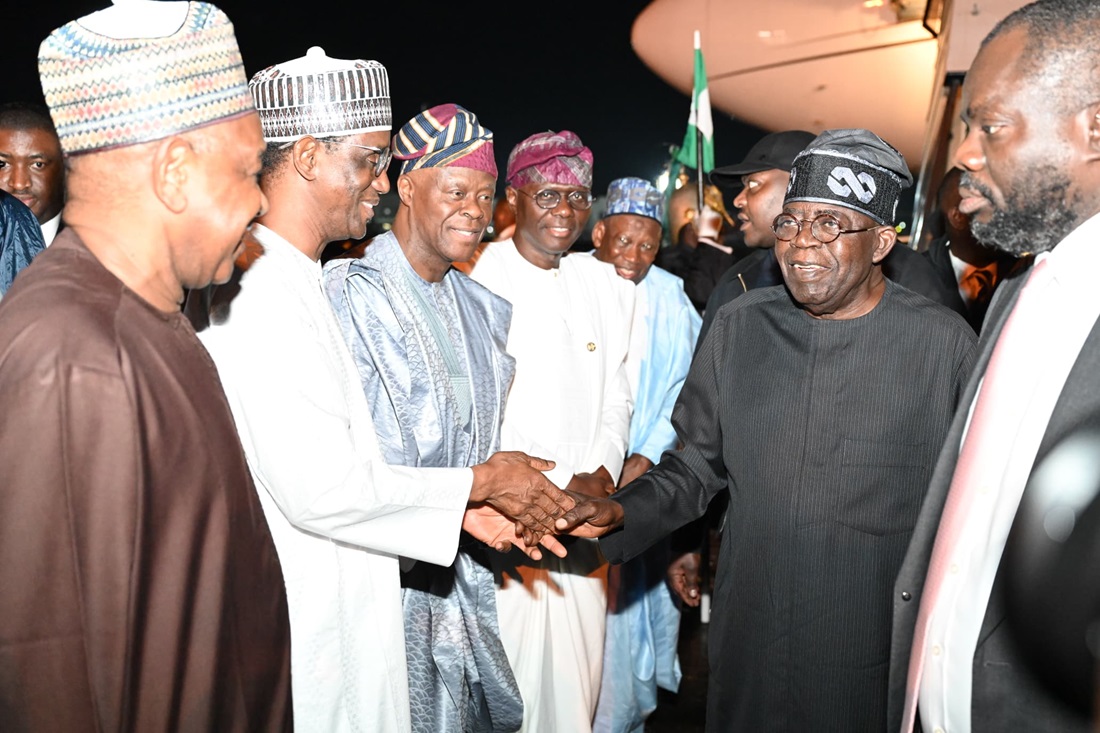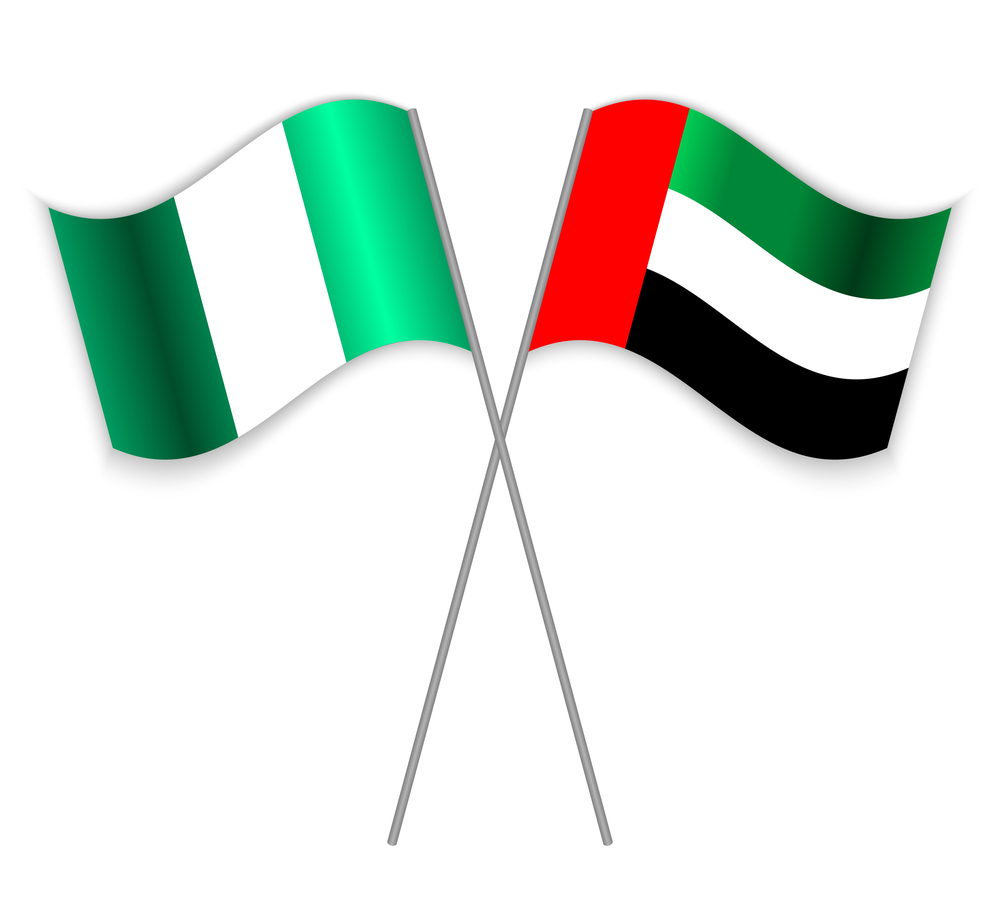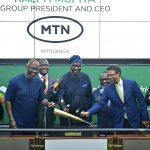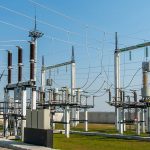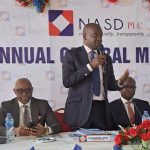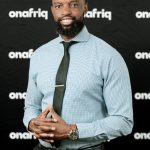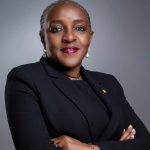Feature/OPED
May 29 and Quest for A New Nigeria
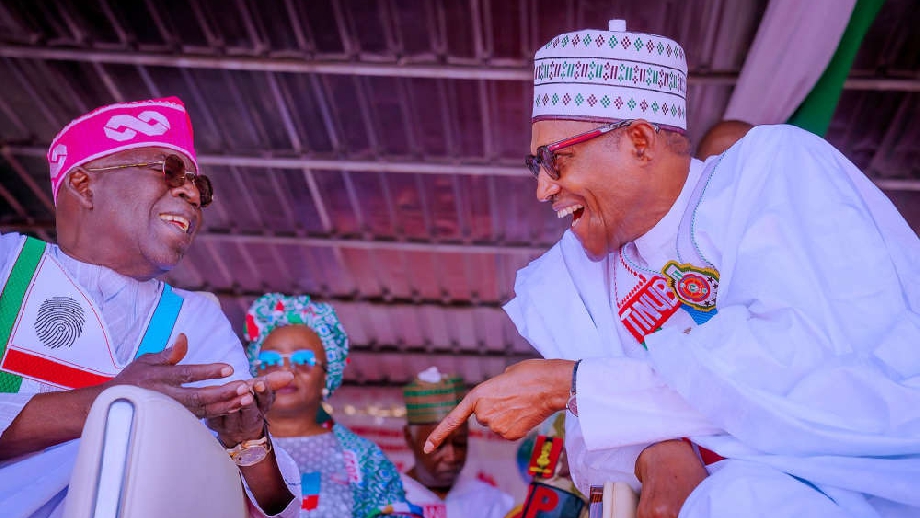
By Jerome-Mario Chijioke Utomi
As the nation Nigeria stands at the exit door of President Muhammadu Buhari-led federal government and gazes at the May 29 inauguration date of incoming administrations at both state and federal government levels, it is important to underline that the protracted leadership crisis witnessed at both state and federal levels occurred not because the democracy and federal systems we practice are on their own bad or unable to provide the needed solution to the nation’s array of political and economic needs, but because too many politicians and public office holders exercised power and responsibility not as a trust for the public good, rather, but as an opportunity for private gain.
This glaringly deformed leadership style has left the nation with three separate but similar harsh effects; first, it destroyed the social infrastructures relevant for a meaningful and acceptable level of the social existence of the people.
Secondly, making the nation’s economy go against the provisions of the constitutions as an attempt to disengage governance from public sector control of the economy has only played into waiting for the hands of the profiteers of goods and services to the detriment of the Nigerian people.
Thirdly and very key, conspired and visited the nation with myriads of sociopolitical contradictions stripped of social harmony, justice, equity and equality.
Adding context to the discourse, this is a kind of leadership crisis that happens when ‘lust for power prevails over granting people the love and care they deserve, when the interest and destiny of one individual become more important than those of the whole nation when the interests of some groups and cliques are served instead of those of all the people. In other words, this state of affairs happens when you put the people at the service of the government, in sharp contrast with the norm.
Aside from non-adherence to public opinion, which has no doubt thrown the economy into reserve and passed the burden onto the backs of Nigerians, this piece believes that the most ‘profound’ failure of the present administration (state and Federal) which the incoming administration must avoid if they are desirous of success, is their persistent inabilities to promptly respond to the socioeconomic need of Nigerians.
For example, the government’s shift of attention from job creation has undermined the feelings of Nigerians and shifted the distribution of income strongly in favour of those in government.
At the very moment, information released on April 11, 2023, by KPMG, a multidimensional consulting firm, disclosed that Nigeria’s unemployment rate would increase to 40.6 per cent in 2023 from 37.7 per cent in 2022. According to economic analysts, this was due to weak performance in the job-elastic sectors and low labour absorption of sectors that will drive growth.
In my view, the average Nigerian is worse off now, economically and materially, than he/she was in 2015. The people are living through the worst social and economic crisis since independence; poor leadership; poor strategy for development; lack of capable and effective state and bureaucracy; lack of focus on sectors that will improve the condition of living of citizens, such as education, health, agriculture and the building of infrastructure; corruption; undeveloped, irresponsible and parasitic private sector; weak civil society; emasculated labour and student movement and poor execution of policies and programmes’.
In the past 8years, the Nigerian workforce grew, but the number of manufacturing jobs has actually declined as a result of the relocation of these industries to neighbouring African countries. A development occasioned by the inability of the FG to guarantee security and electricity.
Jobs created by the federal government under the N-Power programme were part-time and not secured. Two third of those doing part-time jobs want full-time jobs and cannot find them. Unemployment is far and away from the top concern of Nigerians. Millions of workers have given up hope of finding employment.
This author is not alone in this line of belief.
At a recent lecture in Lagos delivered by the President of the African Development Bank (AfDB), Dr Akinwumi Adesina, titled: Nigeria – A Country of Many Nations: A Quest for National Integration, Dr Adesina lamented the high rate of joblessness among Nigerians, saying about 40 per cent of youths were unemployed. While noting that the youths were discouraged, angry and restless as they looked at a future that did not give them hope, he said all hope was not lost as youths have a vital role to play if the country should arrive at its destined destination.
Adesina spoke the mind of Nigerians. His words and argument were admirable, and most importantly, it remains the most dynamic and cohesive action expected of a leader of his class to earn a higher height of respect. The truth is that Nigerians have gotten used to such statistics while unemployment commentaries in the country have become a regular music hall act.
Take as an illustration, in the first quarter of 2021, a report published by the National Bureau of Statistics (NBS) on its website noted that Nigeria’s Unemployment Rate has risen from 27.1 per cent in the second quarter of 2020 to 33 per cent. Aside from making it the second highest on Global List, the NBS report, going by analysis, shows that ‘more than 60 per cent of Nigeria’s working-age population is younger than 34.
Unemployment for people aged 15 to 24 stood at 53.4 per cent in the fourth quarter and at 37.2 per cent for people aged 25 to 34. The jobless rate for women was 35.2 per cent compared with 31.8 per cent for men.
The recovery of the economy with 200 million people will be slow, with growth seen at 1.5 per cent this year, after last year’s 1.9 per cent contraction, according to the International Monetary Fund (IMF). The output will only recover to pre-pandemic levels in 2022, the lender said. The number of people looking for jobs will keep rising as population growth continues to outpace output expansion.
Nigeria is expected to be the world’s third-most-populous country by 2050, with over 300 million people, according to the United Nations. Unquestionably, while this quadrupling over the last five years, which has attracted varying reactions from well-meaning Nigerians, remains a sad commentary by all ramifications as it is both worrying and scary, the present development demands two separate but similar actions. First is the urgent shift from lamentation and rhetoric to finding solutions by asking solution-oriented questions. The second has to do with the implementation of experts’ advice/solutions to unemployment in Nigeria. This is indeed time to commit to mind the words of Franklin D. Roosevelt, former President of the United States of America, that “extraordinary conditions call for extraordinary remedies.”
Beginning with questions, it has become important for the incoming administration to ask what could be responsible for the ever-increasing unemployment rate in Nigeria. Is it leadership or the nation’s educational system? If it is faulty education sector-driven, what is the government (both state and federal) going to do to rework the policies since education is in the concurrent list of the nation’s 1999 constitution (as amended)? Are the leaders embodied with leadership virtues that the global community can respect? Or moral and ethical principles the people can applaud with enthusiasm?
Experts have pointed out that to arrest the drifting unemployment situation in the country, four sectors of ‘interest’ to watch are education, science and technology, agriculture and infrastructure.
On the educational system in the country, analysts are of the view that the education policies of the 6-3-3-4 system are excellent in the policy statement, but the inability of the financiers to provide the teaching tools for its success has truncated its intended goal and objectives. However, to arrest the unemployment challenge, they added, entrepreneurial programmes should be integrated into the educational system from primary schools to universities. Creativity, courage and endurance are skills that should be taught by psychologists to students in all classes of our educational system.
Nigeria, they explained, has to increase the number of her current Polytechnics, Colleges of Technology and Technical Colleges drastically in relation to the in-explicable very large number of Universities and related Academies in Nigeria’s economy in order to clearly address the training and development of professional and technical skills for Technologies and Industrial goods production in Nigeria’s Economy.
It is important, in my view, that any country like Nigeria, desirous of achieving sustainable development, must throw its weight behind agriculture by creating an enabling environment that will encourage youths to take to farming. First, separate from the worrying report that by 2050, global consumption of food and energy is expected to double as the world’s population and incomes grow, while climate change is expected to have an adverse effect on both crop yields and the number of arable acres, we are in dire need of solution to this problem because unemployment has diverse implications. Security-wise, a large unemployed youth population is a threat to the security of the few that are employed. Any transformation that does not have job creation as its main objective will not take us anywhere, and the agricultural sector has the capacity to absorb the teeming unemployed youths in the country.
The second reason is that globally, there are dramatic shifts from agriculture in preference for the white-collar jobs-a trend that urgently needs to be reversed. In the United States of America, there exists a shift in the locations and occupations of urban consumers. In 1900, about 40 per cent of the total population was employed on the farm, and 60 per cent lived in rural areas. Today, the respective figures are only about one per cent and 20 per cent.
Over the past half-century, the number of farms has fallen by a factor of three. As a result, the ratio of urban eaters to rural farmers has markedly risen, giving the food consumer a more prominent role in shaping the food and farming system. The changing dynamic has also played a role in public calls to reform federal policy to focus more on the consumer implications of the food supply chain.
Separate from job creation, averting malnutrition which constitutes a serious setback to the socio-economic development of any nation, is another reason why Nigeria must embrace agriculture – a vehicle for food security and a sustainable socio-economic sector. Agriculture production should receive heightened attention. In Nigeria, an estimated 2.5 million children under five suffer from severe acute malnutrition (SAM) annually, exposing nearly 420,000 children within that age bracket to early death from common childhood illnesses such as diarrhoea, pneumonia and malaria. Government must provide the needed support through funding, providing technical know-how and other specialised training.
For Nigeria to be all that it can be, the youth of Nigeria must be all they can be.” The future of Nigeria depends on what it does today with its dynamic youth population. This demographic advantage must be turned into a first-rate and well-trained workforce, for Nigeria, for the region, and for the world. The incoming administration must prioritise investments in the youth: in upskilling them for the jobs of the future, not the jobs of the past; by moving away from so-called youth empowerment to youth investment; to opening up the social and political space to the youth to air their views and become a positive force for national development; and for ensuring that we create youth-based wealth.”
On the imperatives of Infrastructural development such as roads, rail and electricity, the incoming government must recognize the fact that infrastructure enables development and provides the services that underpin the ability of people to be economically productive, for example, via transport. “The transport sector has a huge role in connecting populations to where the work is,” says Ms Marchal. Infrastructural investments help stem economic losses arising from problems such as power outages or traffic congestion. The World Bank estimates that in Sub-Saharan Africa, closing the infrastructure quantity and quality gap relative to the world’s best performers could raise GDP growth per head by 2.6 per cent annually.
For us to achieve the target objective in the rail sector, the incoming government must start thinking of a rail system that will have a connection of major economic towns/cities as the focus.
Achieving this objective will help the poor village farmers in Benue/Kano and other remote areas earn more money, contributes to lower food prices in Lagos and other cities through the impact on the operation of the market, increase the welfare of household both in Kano, Benue, Lagos and others while it improves food security in the country, reduce stress/pressure daily mounted on Nigerian roads by articulated/haulage vehicles and drastically reduce road accidents on our major highways.
In the area of electricity/power generation and distribution, there is an urgent imperative for the incoming government to openly admit and adopt both structural and managerial changes that impose more leadership discipline than conventional and create government institutions that are capable of making successful decisions built on a higher quality of information which needs to be granted.
To give an example, in 2005 and 2010, Chief Olusegun Obasanjo and Dr Goodluck Ebele Jonathan-led the federal government, respectively, came up with the electric power sector reform, EPSR, ACT 2005 and the roadmap for power sector reform of 2010, which was targeted at sanitizing the power sector, ensure efficient and adequate power supply to the country. The project ended in the frames – reportedly gulping billions of dollars without contributing the targeted megawatt to the nation’s power needs.
The Buhari-led administration is presently in a similar partnership with the German government and Siemens. But in my observation, the only change that has taken place since this new development is thoughtless increments of bills/tariffs paid by Nigerians.
No nation can survive under this form of arrangement.
Finally, while this piece calls on the incoming government to provide Nigerians with a standard of living adequate for their health and well-being, Nigerians, on their part, must look up to God, their maker and talk to him through positive actions. They must join their faith with that of James Weldon Johnson to pray; ‘Oh God of our weary years, God of our silent tears, Thou hast us far on the way; Thou who by the might lead us into the light. Keep us forever in part we pray lest our feet stray away from places, our God where we meet thee. Lest our heart is drunk with the wine of the world, and we forget thee; Shadowed beneath thy hand, may we forever stand true to our God, true to our native land’. To this, I say a very big amen.
Jerome-Mario is the programme coordinator (Media and Public Policy) for Social and Economic Justice Advocacy (SEJA). He can be reached via [email protected]/08032725374
Feature/OPED
AU Must Reform into an Institution Africa Needs

By Mike Omuodo
From an online post, a commentator asked an intriguing question: “If the African Union (AU) cannot create a single currency, a unified military, or a common passport, then what exactly is this union about?”.
The comment section went wild, with some commentators saying that AU no longer serves the interest of the African people, but rather the interests of the West and individual nations with greedy interests in Africa’s resources. Some even said jokingly that it should be renamed “Western Union”.
But seriously, how has a country like France managed to maintain an economic leverage over 14 African states through its CFA Franc system, yet the continent is unable to create its own single currency regime? Why does the continent seem to be comfortable with global powers establishing their military bases throughout its territories yet doesn’t seem interested in establishing its own unified military? Why does the idea of an open borders freak out our leaders, driving them to hide under sovereignty?
These questions interrogate AU’s relevance in the ensuing geopolitics. No doubt, the AU is still relevant as it still speaks on behalf of Africa on global platforms as a symbol of the continent’s unity. But the unease surrounding it is justified because symbolism is no longer enough.
In a continent grappling with persistent conflict, economic fragmentation, and democratic reversals, institutions are judged not by their presence, but by their impact.
From the chat, and several other discussion groups on social media, most Africans are unhappy with the performance of the African Union so far. To many, the organization is out of touch with reality and they are now calling for an immediate reset.
To them, AU is a club of cabals, whose main achievements have been safeguarding fellow felons.
One commentator said, “AU’s main job is to congratulate dictators who kill their citizens to retain power through rigged elections.” Another said, “AU is a bunch of atrophied rulers dancing on the graves of their citizens, looting resources from their people to stash in foreign countries.”
These views may sound harsh, but are a good measure of how people perceive the organization across the continent.
Blurring vision
The African Union, which was established in July 2002 to succeed the OAU, was born out of an ambitious vision of uniting the continent toward self-reliance by driving economic Integration, enhancing peace and security, prompting good governance and, representing the continent on the global stage – following the end of colonialism.
Over time, however, the gap between this vision and the reality on the ground has widened. AU appears helpless to address the growing conflicts across the continent – from unrelenting coups to shambolic elections to external aggression.
This chronic weakness has slowly eroded public confidence in the organization and as such, AU is being seen as a forum for speeches rather than solutions – just as one commentator puts it, “AU has turned into a farce talk shop that cannot back or bite.”
Call for a new body
The general feeling on the ground is that AU is stagnant and has nothing much to show for the 60+ years of its existence (from the times of OAU). It’s also viewed as toothless and subservient to the whims of its ‘masters’. Some commentators even called for its dissolution and the formation of a new body that would serve the interests of the continent and its people.
This sounds like a no-confidence vote. To regain favour and remain a force for continental good, AU must undertake critical reforms, enhance accountability, and show political courage as a matter of urgency. Without these, it may endure in form while fading in substance.
The question is not whether Africa needs the AU, but whether the AU is willing and ready to become the institution Africa needs – one that is bold enough to initiate a daring move towards a common market, a single currency, a unified military, and a common passport regime. It is possible!
Mr Omuodo is a pan-African Public Relations and Communications expert based in Nairobi, Kenya. He can be reached on [email protected]
Feature/OPED
Recapitalisation: Silent Layoffs, Infrastructure Deficit Threat to $1trn Economy
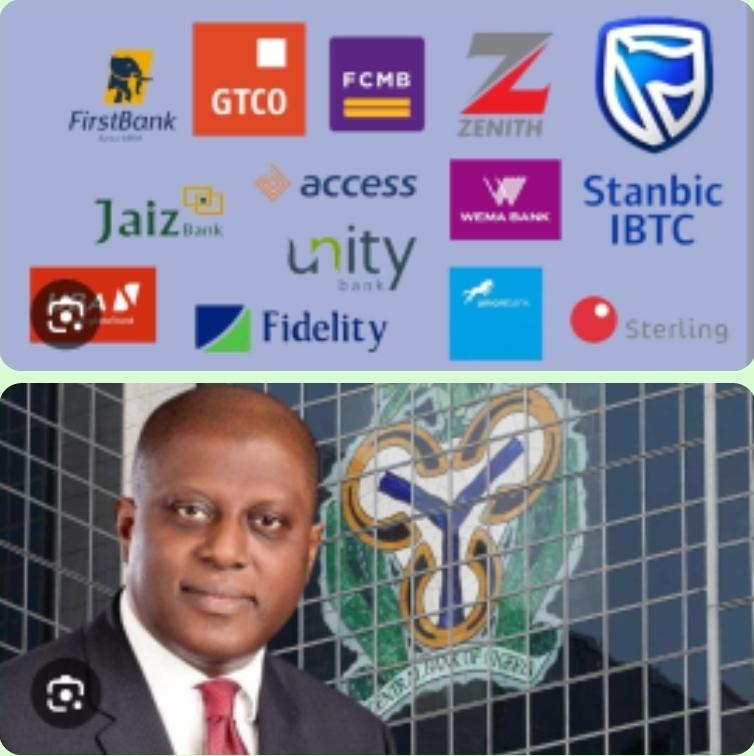
By Blaise Udunze
The Central Bank of Nigeria’s recapitalisation exercise, which is scheduled for a March 31, 2026, deadline, has continued to reignite optimism across financial markets and is designed to build stronger, more resilient banks capable of financing a $1 trillion economy. With the ongoing exercise, the industry has been witnessing bank valuations rising, investors are enthusiastic, and balance sheets are swelling. However, beneath these encouraging headline numbers, unbeknownst to many, or perhaps some troubling aspects that the industry players have chosen not to talk about, are the human cost of consolidation and the infrastructure deficit.
Recapitalisation often leads to mergers and acquisitions. Mergers, in turn, almost always lead to job rationalisation. In Nigeria’s case, this process is unfolding against an already fragile labour structure in the banking industry, one where casualisation has become the dominant employment model.
One alarming fact in the Nigerian banking sector is the age-old workforce structure raised by the Association of Senior Staff of Banks, Insurance and Financial Institutions (ASSBIFI), which says that an estimated 60 percent of operational bank workers today are contract staff. This reality raises profound questions about the sustainability of Nigeria’s banking reforms and the credibility of its economic ambitions.
A $1 trillion economy cannot be built on insecure labour, shrinking institutional knowledge, and an overstretched financial workforce.
Recapitalisation and the Hidden Merger Trap
History is instructive. Referencing Nigeria’s 2004-2005 banking consolidation exercise, which reduced the number of banks from 89 to 25, and no doubt, it produced larger institutions, while it also triggered widespread job losses, branch closures, and a wave of outsourcing that permanently altered employment relations in the sector. The current recapitalisation push risks repeating that cycle, only this time within a far more complex economic environment marked by inflation, currency volatility, and rising unemployment.
Mergers promise efficiency, but efficiency often comes at the expense of people. Speaking of this, duplicate roles are eliminated, technology replaces frontline staff, and non-core functions are outsourced. The troubling part of it is that this is already a system reliant on contract labour; mergers could accelerate workforce instability, turning banks into balance-sheet-heavy institutions with shallow human capital depth.
ASSBIFI’s warning is therefore not a labour agitation; it is a macroeconomic red flag.
Casualisation as Structural Weakness, Not a Cost Strategy
It has been postulated by proponents of job casualisation that it is a cost-control mechanism necessary for competitiveness. Contrary to this argument, evidence increasingly shows that it is a false economy. In reaction to this, ASSBIFI President Olusoji Oluwole, who kicked against this structural weakness, asserted that excessive reliance on contract workers undermines job security, suppresses wages, limits access to benefits and blocks career progression while affirming that over time, this erodes morale, loyalty, and productivity.
More troubling are the systemic risks. Casualisation creates operational vulnerabilities, higher fraud exposure, weaker compliance culture, and lower institutional memory.
One of the banking regulators, the Nigeria Deposit Insurance Corporation (NDIC), has not desisted from repeatedly cautioning that excessive outsourcing and short-term staffing models increase security risks within banks. On the negative implications, when employees feel disposable, ethical commitment weakens, and reputational risk grows.
Banking is not a factory floor. It is a trust business. And trust does not thrive in insecurity.
Inside Outsourcing Web of Conflict of Interest
Beyond cost efficiency, Nigeria’s casualisation crisis is also fuelled by a deeper governance problem, conflicts of interest embedded within the outsourcing ecosystem.
In many cases, bank chief executives and executive directors are reported to own, control, or have beneficial interests in outsourcing companies that provide services to their own banks. Invariably, it is the same firms supplying contract staff, cleaners, security personnel, call-centre agents, and even IT support. Structurally, this arrangement allows senior executives to profit directly from the same outsourcing model that strips workers of job security and benefits.
The incentive is clear. Outsourcing enables banks to maintain lean payrolls, bypass strict labour protections associated with permanent employment, and reduce long-term obligations such as pensions and healthcare. But when those designing outsourcing strategies are also financially benefiting from them, the line between efficiency and exploitation disappears.
This model entrenches casualisation not as a temporary adjustment tool, but as a permanent business strategy, one that externalises social costs while internalising private gains.
Exploitation and Its Systemic Consequences
The human impact is severe because the contract staff employed through executive-linked outsourcing firms often face poor working conditions, low wages, limited or no health insurance, and zero job security, which is demotivating. Many perform the same functions as permanent staff but without benefits, voice, or career prospects.
ASSBIFI has warned that prolonged exposure to such insecurity leads to psychological stress, declining morale, and reduced productive life years. Studies on Nigeria’s banking sector confirm that casualisation weakens employee commitment and heightens anxiety, conditions that directly undermine service quality and operational integrity.
From a systemic standpoint, exploitation feeds fragility. High staff turnover erodes institutional memory. Disengaged workers weaken internal controls. Meanwhile, this should be a sector where trust, confidentiality, and compliance are paramount; this is a dangerous trade-off if it must be acknowledged for what it is.
Why Workforce Numbers Tell a Deeper Story
It is in record that as of 2025, Nigeria’s banking sector employs an estimated 90,500 workers, up from roughly 80,000 in 2021. The top five banks today, such as Zenith, Access Holdings, UBA, GTCO, and Stanbic IBTC, account for about 39,900 employees, reflecting moderate growth driven by digital expansion and regional operations.
At face value, truly, these figures suggest resilience. But when viewed alongside the 60 percent casualisation rate, they paint a different picture, revealing that employment growth is without employment quality. A workforce dominated by contract staff lacks the stability required to support long-term credit expansion, infrastructure financing, and industrial transformation.
This matters because banks are expected to be the engine room of Nigeria’s $1 trillion economy, funding roads, power plants, refineries, manufacturing hubs, and digital infrastructure. Weak labour foundations will eventually translate into weak execution capacity.
Nigeria’s Infrastructure Financing Contradiction
Nigeria’s infrastructure deficit is estimated in the hundreds of billions of dollars. Power, transport, housing, and broadband require long-term financing structures, sophisticated risk management, and deep sectoral expertise. Yet recapitalisation-induced mergers often lead to talent loss in precisely these areas.
As banks consolidate, specialist teams are downsized, project finance units are merged, and experienced professionals exit the system, either voluntarily or through redundancy. Casual staff, by design, are rarely trained for complex, long-term infrastructure deals. The result is a contradiction, revealing that larger banks have bigger capital bases but thinner technical capacity.
Without deliberate workforce protection and skills development, recapitalisation may produce banks that are too big to fail, but too hollow to build.
South Africa Offers a Useful Contrast
South Africa offers a revealing counterpoint. As of 2025, the country’s “big five” banks, such as Standard Bank, FNB, ABSA, Nedbank, and Capitec, employ approximately 136,600 workers within South Africa and about 184,000 globally. This is significantly higher than Nigeria’s banking workforce, despite South Africa having a smaller population.
More importantly, South African banks maintain a far higher proportion of permanent staff. While outsourcing exists, core banking operations remain firmly institutionalized compared to the Nigerian banking system. For this reason, South Africa’s career progression pathways are clearer, labour regulations are more robustly enforced, and unions play a more structured role in workforce negotiations.
The result is evident in outcomes. South Africa’s top six banks are collectively valued at over $70 billion, with Standard Bank alone boasting a market capitalisation of approximately $30 billion and total assets nearing $192 billion. Nigeria’s top 10 banks, by contrast, held combined assets of about $142 billion as of early 2025, even with a much larger population and economy, and its 13 listed banks reached a combined market capitalisation of about N17 trillion ($11.76 billion at an exchange rate of N1,445) in 2026.
Though this gap is not just about capital. It is about institutional depth, workforce stability, and governance maturity.
Bigger Valuations, But a Weaker Foundations?
Nigeria’s 13 listed banks reached a combined market capitalisation of about N17 trillion in 2026. It is no surprise, as it is buoyed by investor anticipation of recapitalisation and higher capital thresholds. Yet market value does not automatically translate into economic impact. Without parallel investment in people, systems, and long-term skills, valuation gains remain fragile.
South Africa’s experience shows that strong banks are built not only on capital adequacy, but on human capital adequacy. Skilled, secure workers are better risk managers, better innovators, and better custodians of public trust.
Labour Law and its Regulatory Blind Spots
ASSBIFI’s call for a review of Nigeria’s Labour Act is timely, and this is because the current framework lags modern employment realities, particularly in sectors like banking, where technology and outsourcing have blurred traditional employment lines. Regulatory silence has effectively legitimised casualisation as a default model rather than an exception.
The Central Bank of Nigeria cannot afford to treat workforce issues as outside its mandate. Prudential stability is inseparable from labour stability. Regulators must begin to view excessive casualisation as a risk factor, just like liquidity mismatches or weak capital quality.
Recapitalisation Without Inclusion Is Incomplete
If recapitalisation is to succeed, it must be inclusive; therefore, the industry must witness the enforcement of career path frameworks for contract staff, limiting the proportion of outsourced core banking roles, and aligning capital reforms with employment protection. It also means recognising that labour insecurity ultimately feeds systemic fragility.
South Africa’s banking sector did not avoid consolidation, but it managed it alongside workforce safeguards and institutional continuity. Nigeria must do the same or risk building banks that look strong on paper but crack under economic pressure.
True Measure of Reform
Judging by the past reform in 2004-2005, it has shown that Nigeria’s banking recapitalisation will be judged not by the size of balance sheets, but by the resilience of the institutions it produces. As part of the recapitalisation target for more resilient banks capable of financing a $1 trillion economy, it demands banks that can think long-term, absorb shocks, finance infrastructure, and uphold trust. None of these goals is compatible with a workforce trapped in perpetual insecurity.
Casualisation is no longer a labour issue; it is a national economic risk. If mergers proceed without deliberate workforce stabilisation, Nigeria may end up with fewer banks, fewer jobs, weaker institutions, and a slower path to prosperity.
The lesson from South Africa is clear, as it shows that strong banks are built by strong people. Until Nigeria’s banking reforms fully embrace that truth and the missing pieces are addressed, recapitalisation will remain an unfinished project. and the $1 trillion economy, an elusive promise.
Blaise, a journalist and PR professional, writes from Lagos, can be reached via: [email protected]
Feature/OPED
In Nigeria… One Day Monkey Go Go Market
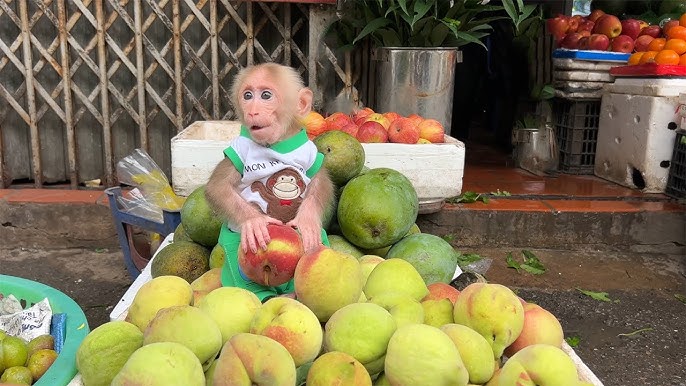
By Prince Charles Dickson PhD
In Nigeria, the road has become a stage where power performs its most absurd theatre. The siren—once a tool of emergency—now plays the soundtrack of ego. The convoys, longer than a bride’s procession, louder than a market quarrel, move through our streets like small invading armies. And every time that blaring, violent sound slices through the air, a simple truth echoes behind it: one day monkey go go market… and e no go return.
Because power, especially Nigerian power, has a short memory. And even shorter patience.
These leaders who move as though the sun itself must pause when they pass were once ordinary Nigerians. They once queued at bus stops, once waited under the rain for taxis, once navigated potholed streets with the same caution as every other citizen trying not to die by negligence. But somewhere between election and inauguration, ambition and arrogance, something snapped. Their feet left the ground. Their humanity blurred. And their ears, now accustomed to sirens; forgot how silence feels.
The bizarre culture of convoys in Nigeria has metastasized into something theatrical, violent, and deeply offensive. What began as protocol has become performance. Sirens scream not just to clear the road, but to announce hierarchy. Vehicles speed not just to meet schedules but to demonstrate superiority. And the citizens, the people in whose name this power is supposedly held, scatter like startled chickens. Or worse, end up dead under tires that never brake.
The irony is painful. The same leaders who demand absolute obedience from citizens once walked among those same citizens unnoticed. Once upon a time they lived without outriders, without black-tinted SUVs, without pickup vans carrying heavily armed security men who point guns at commuters as though Lagos traffic is a battlefield. They were once people. Now they behave like a species apart.
But the road remembers. The people remember. And power always forgets that it is a tenant, never a landlord.
Escorts in Nigeria don’t just move with urgency; they move with intimidation. They shove, push, threaten, and roar through roads where ordinary Nigerians are merely trying to survive the day. The siren becomes a weapon, the convoy a declaration of dominance. The message is clear: “Your life must move aside. My importance is passing.”
In what country should this be normal?
Even emergency vehicles; ambulances carrying dying patients, fire trucks racing to burning buildings, sometimes cannot pass because a government official’s convoy has occupied the road with the entitlement of royalty.
This isn’t governance; it’s theater of the absurd.
And the casualties are not metaphorical. Nigerians have died—pregnant women hit by convoys, okada riders knocked off the road, children flung away like debris. Drivers in these convoys behave like warhorses let loose, sworn not to slow down regardless of what or who is ahead.
But who will hold them accountable? Who dares question power that sees questions as disrespect and disrespect as rebellion?
The institutions meant to regulate these excesses are the same institutions that created them. Protocol offices treat speed like divinity. Security details mistake aggression for duty. Schedules are treated as holy commandments. Every meeting becomes urgent. Every movement becomes life-or-death. Every road must clear.
But the truth sits quietly behind all this noise: no meeting is that important, no leader is that indispensable, and no road should require blood to make way.
Somewhere, a child grows up believing public office means public intimidation. A young man sees the behavior of convoys and dreams not of service but of dominance. A young woman imagines that leadership means never waiting in traffic like the rest of society. And so, the cycle of arrogance reproduces itself. A country becomes a laboratory where entitlement multiplies.
In Nigeria, the convoy culture reveals a deeper sickness: a leadership class that has disconnected from the lived realities of the people they claim to govern.
When did proximity to power become justification for violence?
When did schedules become more sacred than lives?
When did we normalize leaders who move like emperors, not elected representatives?
But more importantly: how do these leaders forget so quickly where they came from?
Many of them grew up in the same chaos their convoys now worsen. They once asked why leaders were insensitive. Now they have inherited the same insensitivity and advanced it.
The convoy is more than metal and noise. It is a metaphor. It illustrates how Nigerian governance often operates: pushing the people aside, demanding unquestioned obedience, prioritizing position over responsibility.
And yet, the proverb whispers:
One day monkey go go market… e no go return.
Not because we wish harm on anyone, but because history has its own logic. Power that forgets compassion eventually forgets itself. Leadership that drives recklessly, morally, politically, and literally—will one day crash against the boundaries of public patience.
This metaphor is a quiet mirror for every leader who believes their current status is divine permanence. One day, the sirens will go silent. The tinted windows will roll down. The outriders will be reassigned. The road will no longer clear itself. Reality will return like harmattan dust.
And then the question will confront them plainly:
When your power fades, what remains of your humanity?
The tragedy of Nigeria’s convoy culture is that it makes leadership look like tyranny and renders citizens powerless in their own country. It fosters a climate where ordinary people live in perpetual startle. It deepens distrust. It fuels resentment. It reinforces the perception that leadership is designed to intimidate rather than serve.
And what does it say about us as a nation that we accept this?
We accept the absurdity because we assume it cannot be overturned. We accept arrogance because we assume it is the price of power. We step aside because we assume there is no alternative.
But nations are not built on assumptions. They are built on accountability.
The temporary nature of political power should humble leaders, not inflate them. Four or eight years or whatever time they spend clinging to office cannot compare to the lifetime they will spend as private citizens once the convoys disappear.
When the noise stops, will they walk among us head high or with their face hidden?
When the sirens lose their voice, will they find their own?
What if true leadership was measured not by how loudly you move through society but by how gently you walk among the people?
Imagine a Nigeria where power travels quietly. Where convoys move with the dignity of service, not the violence of entitlement. Where leaders move with humility, not hysteria. Where the streets do not tremble at the approach of authority. Where citizens do not shrink to the roadside, waiting to survive the thunder of tinted SUVs.
It is possible. It is necessary. It begins with leaders remembering that every journey through Nigeria’s roads is a reminder of their accountability, not their dominion.
Because one day, and it will come—monkey go go market.
The convoy will stop.
The siren will fade.
The power will dissolve into yesterday.
And the road will ask the only question that matters:
While you passed through, did you honor the people… or terrorize them?
History will remember the answer.
And so will we—May Nigeria win!
-

 Feature/OPED6 years ago
Feature/OPED6 years agoDavos was Different this year
-
Travel/Tourism9 years ago
Lagos Seals Western Lodge Hotel In Ikorodu
-

 Showbiz3 years ago
Showbiz3 years agoEstranged Lover Releases Videos of Empress Njamah Bathing
-

 Banking8 years ago
Banking8 years agoSort Codes of GTBank Branches in Nigeria
-

 Economy3 years ago
Economy3 years agoSubsidy Removal: CNG at N130 Per Litre Cheaper Than Petrol—IPMAN
-

 Banking3 years ago
Banking3 years agoSort Codes of UBA Branches in Nigeria
-

 Banking3 years ago
Banking3 years agoFirst Bank Announces Planned Downtime
-

 Sports3 years ago
Sports3 years agoHighest Paid Nigerian Footballer – How Much Do Nigerian Footballers Earn






